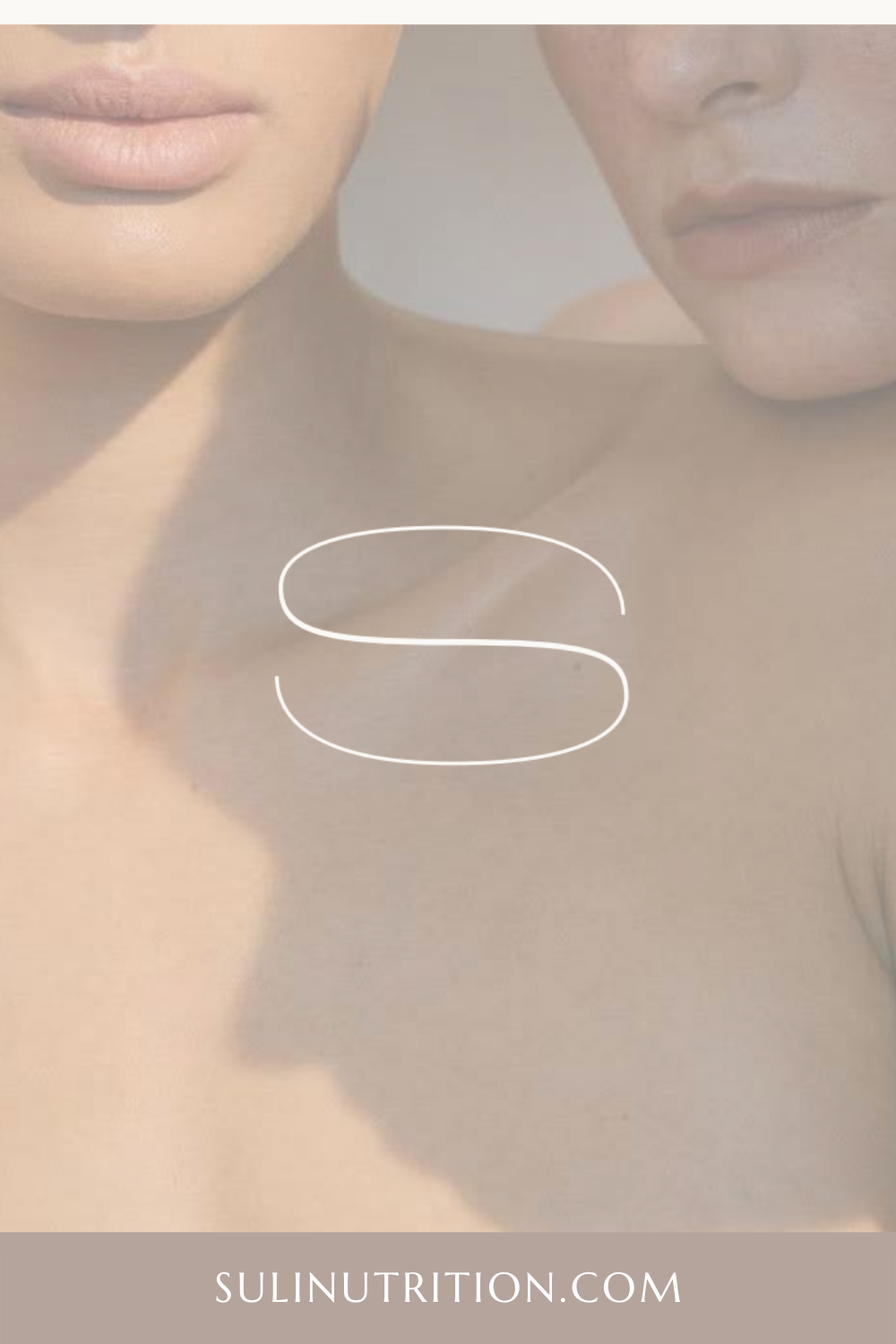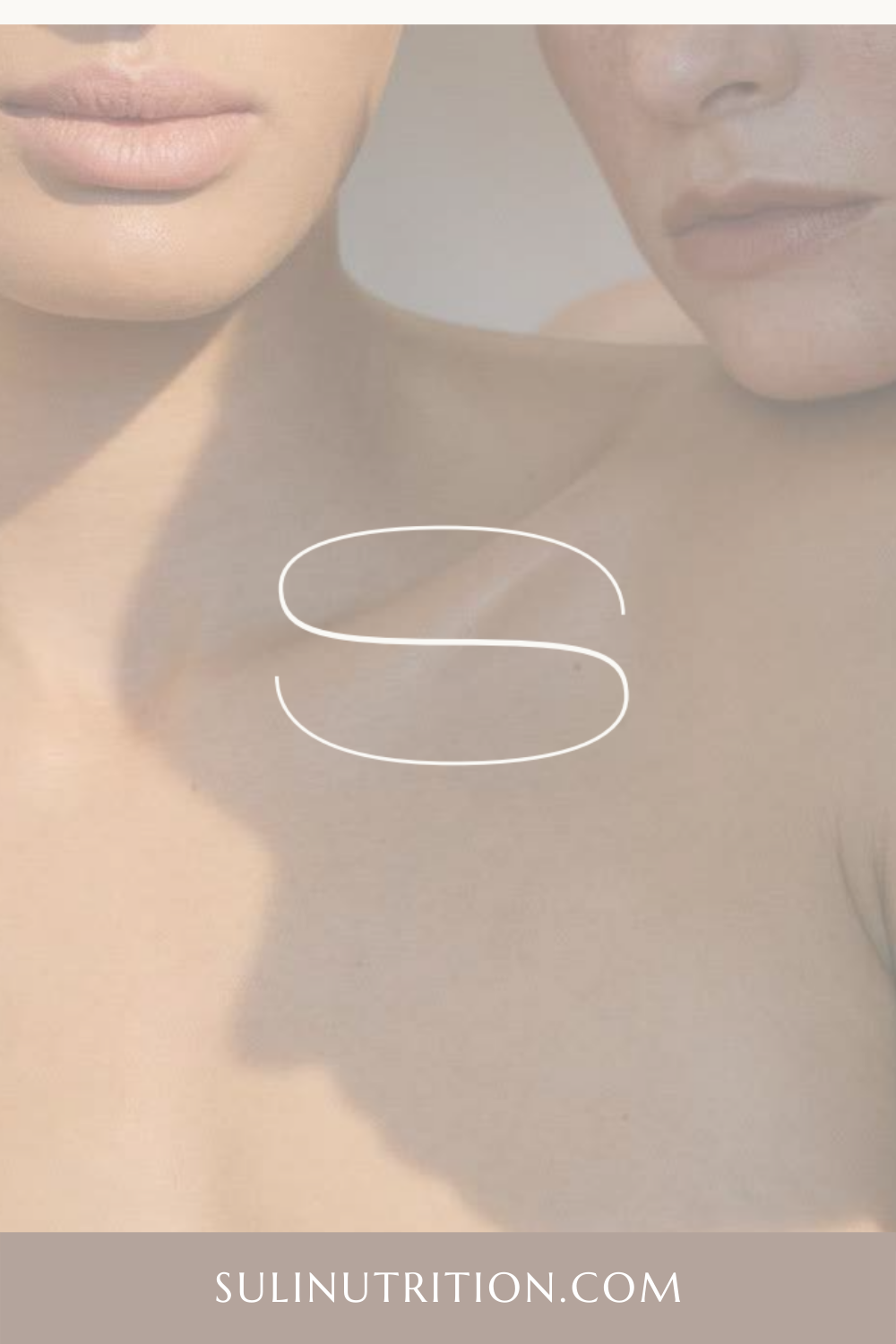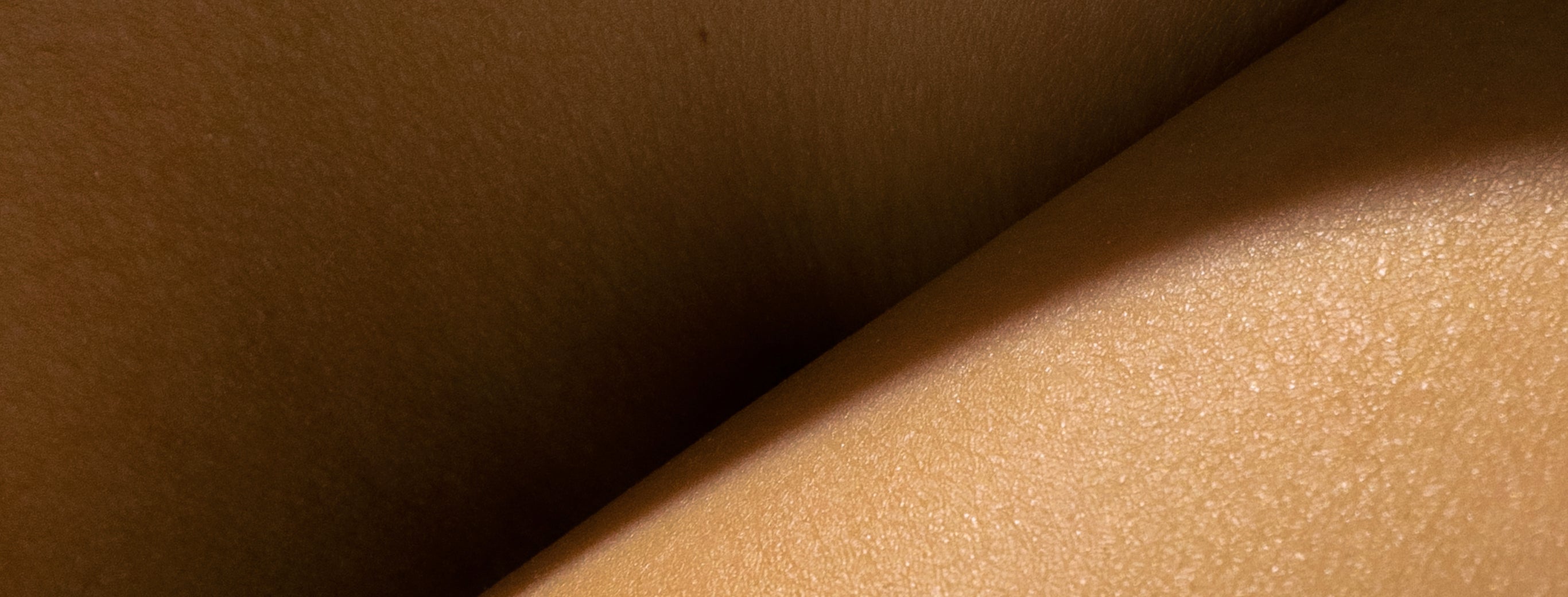"Eat More Protein" is bad advice for plastic surgery
Have you been told “just eat more protein” for your surgery?
Although this advice is not wrong, per se, the advice does not necessarily lead to a stronger recovery.
In fact, solely eating protein while ignoring other micro and macronutrients can lead to complications and stalled incision healing.
Here is why this advice “just eat more protein” is subpar in the setting of cosmetic surgery.
What happens after surgery?
The body begins the “surgical stress response.” To start the healing process of the wound, metabolism increases, speeding up movement of hormones that signal inflammation and blood clotting. These processes also help to block off the wounds and prevent bacteria from entering.
This process is also called hypermetabolism and requires mostly glucose, from carbohydrates, and fat to be used as energy. Just like a person needs more energy when exercising, the body needs more energy to heal a wound.
If protein is provided alone without the other macronutrients, it would be used as an energy source. This would use protein that should be focused on creating new tissues and closing the wound, slowing the healing process.
What happens when you solely focus on more protein:
-
You can become deficient in micronutrients.
Some micros important to wound healing, but not found in high protein foods (animal proteins and beans/legumes), include vitamin K, vitamin C, and vitamin E. Also, vitamin D, while found in salmon and fortified foods like dairy milk, up to 42% of women are deficient depending on the time of year.
-
You have a slower recovery because you don’t have glycogen stores.
Glycogen is the stored form of glucose in muscles and the liver. In times of high metabolism, the body will empty these stores. Thus, if not enough carbohydrate is being eaten, the body will look to other forms of energy, slowing down healing since these energy sources need to be changed into a usable form.
-
Your body starts using your own muscles.
The body can begin breaking down muscle into amino acids, the smallest parts of muscle tissue. The amino acids would be used to heal the wound and provide energy to the body. In order to maintain lean body mass (muscle) and speed up healing time, the macronutrients must all be increased in the right proportions.
*As a special note here, following a ketogenic diet around the time of surgery is not recommended.
Here is how to eat before surgery:
- Carbohydrates
- We recommend at least 150 g before surgery and over 250 g after.
- Produce
- We recommend 2 cups of produce (fruits and vegetables) and lunch and dinner. This will help you replenish nutrient deficiency.
- Protein
- Eat at least 20+ grams of protein at every meal and have 20 gram snack daily. Don't know how much 20 grams is? See the IG here.
What else does the body need to heal an incision after cosmetic surgery?
Now that we know that all macros, carbs, fat, and protein are required, equally important are micronutrients to quicken healing and prevent complications.
Focusing solely on just more protein may lead to malnourishment (a deficiency in certain vitamins and minerals). Up to 70% of adults in the US are not meeting daily nutrient requirements. Going into surgery as a malnourished patient–and 50% or more of people admitted to the hospital are malnourished– makes surgery recovery longer, more difficult, and riskier.
Bottom line:
1. "Just eat more protein" is not wrong, but is subpar advice for cosmetic surgery.
2. Protein does not contain certain nutrients that are needed for wound healing.
3. A good formula to follow to meet all your nutrient goals:
- 20 grams protein @ every meal
- 2 cups of produce at lunch and dinner
- 150 grams + carbs / day.
- Follow us on IG here.
Watch our youtube videos here.
Before + After Vitals
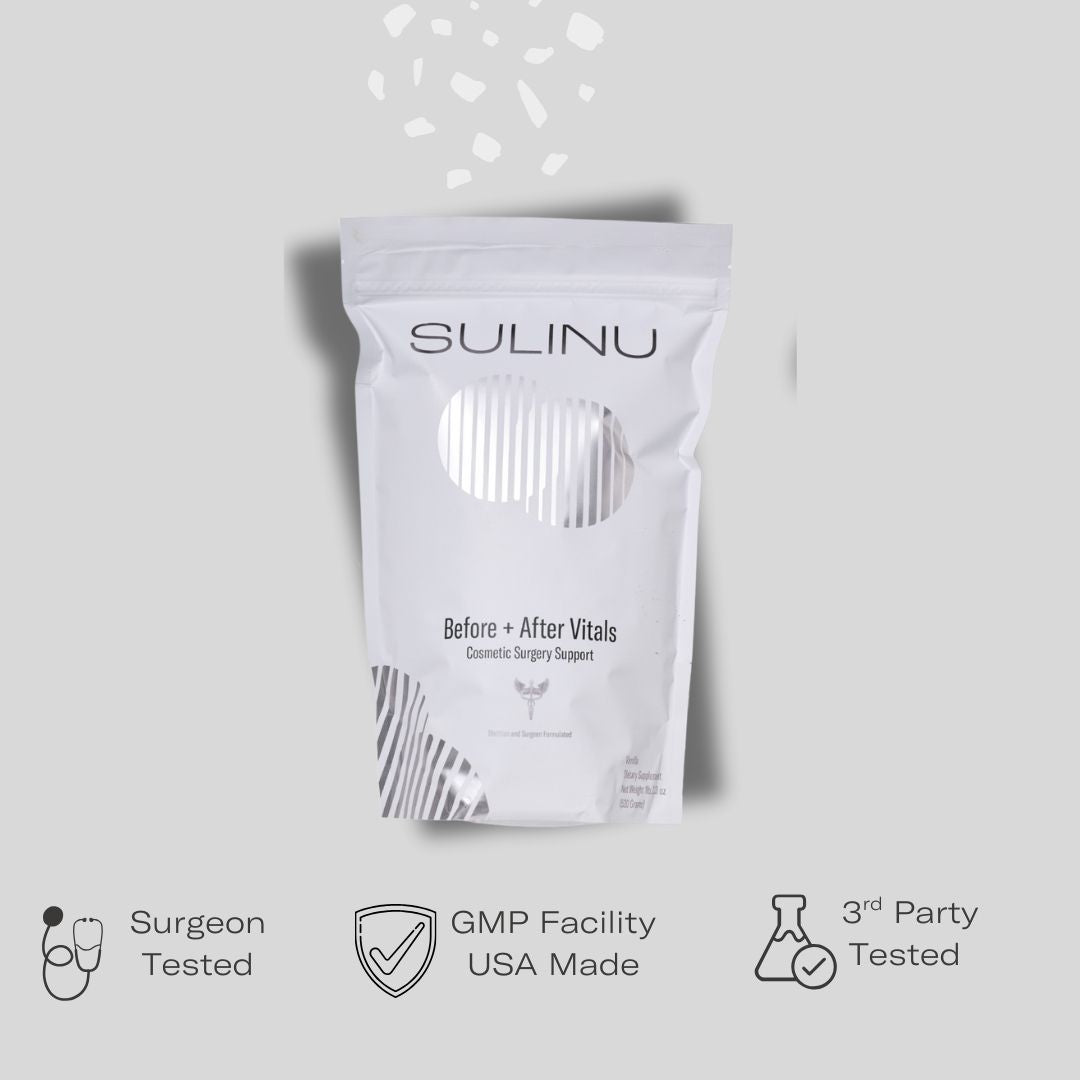
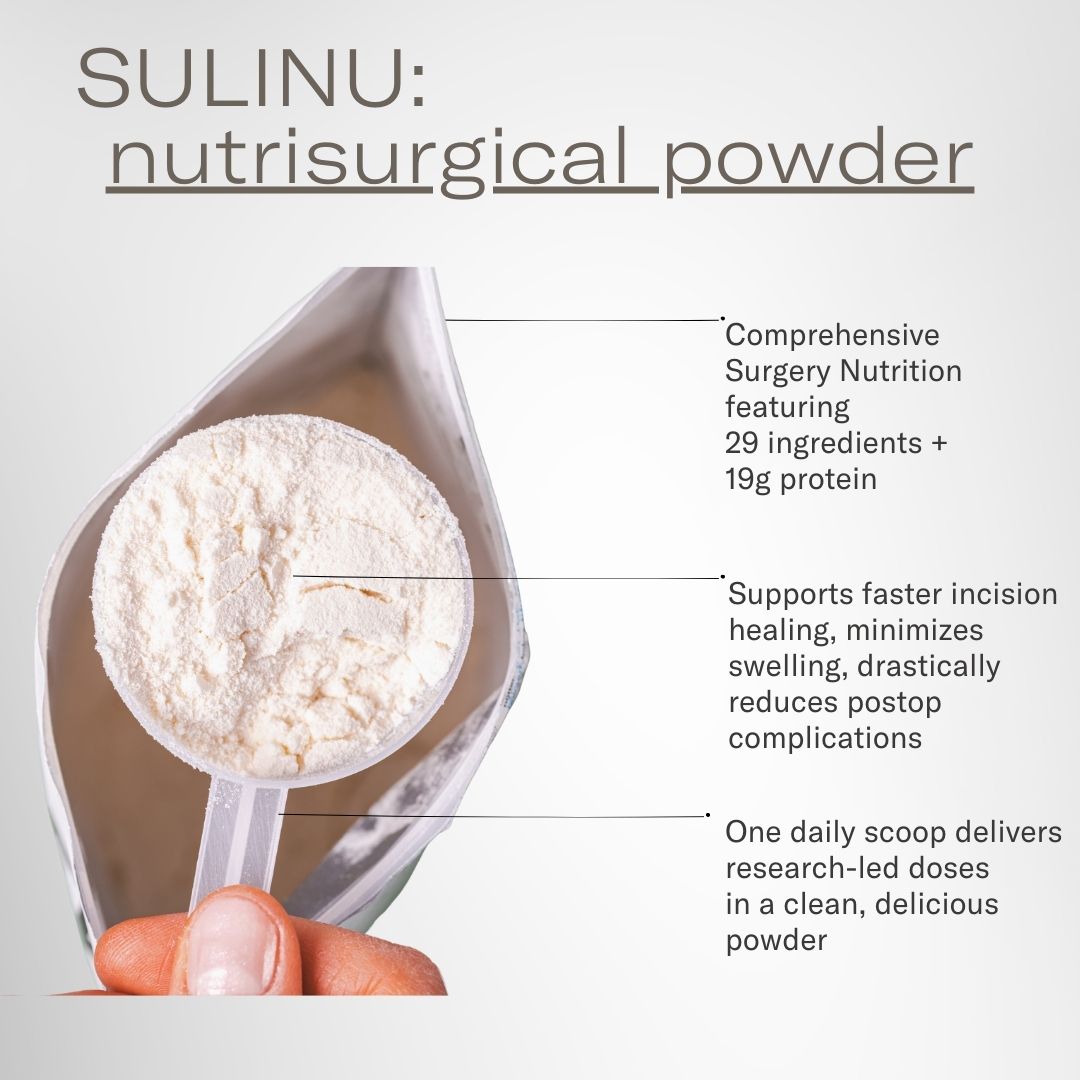
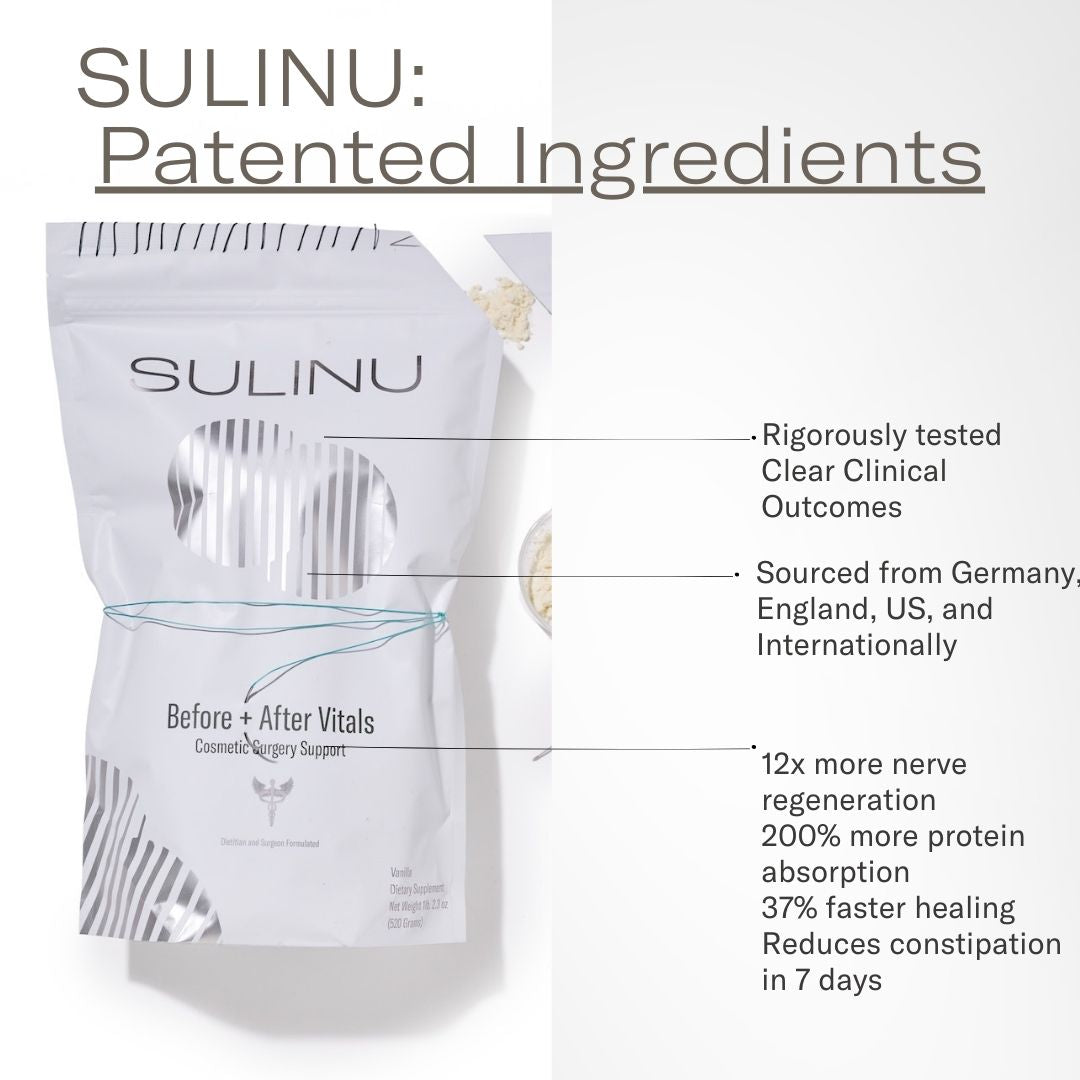
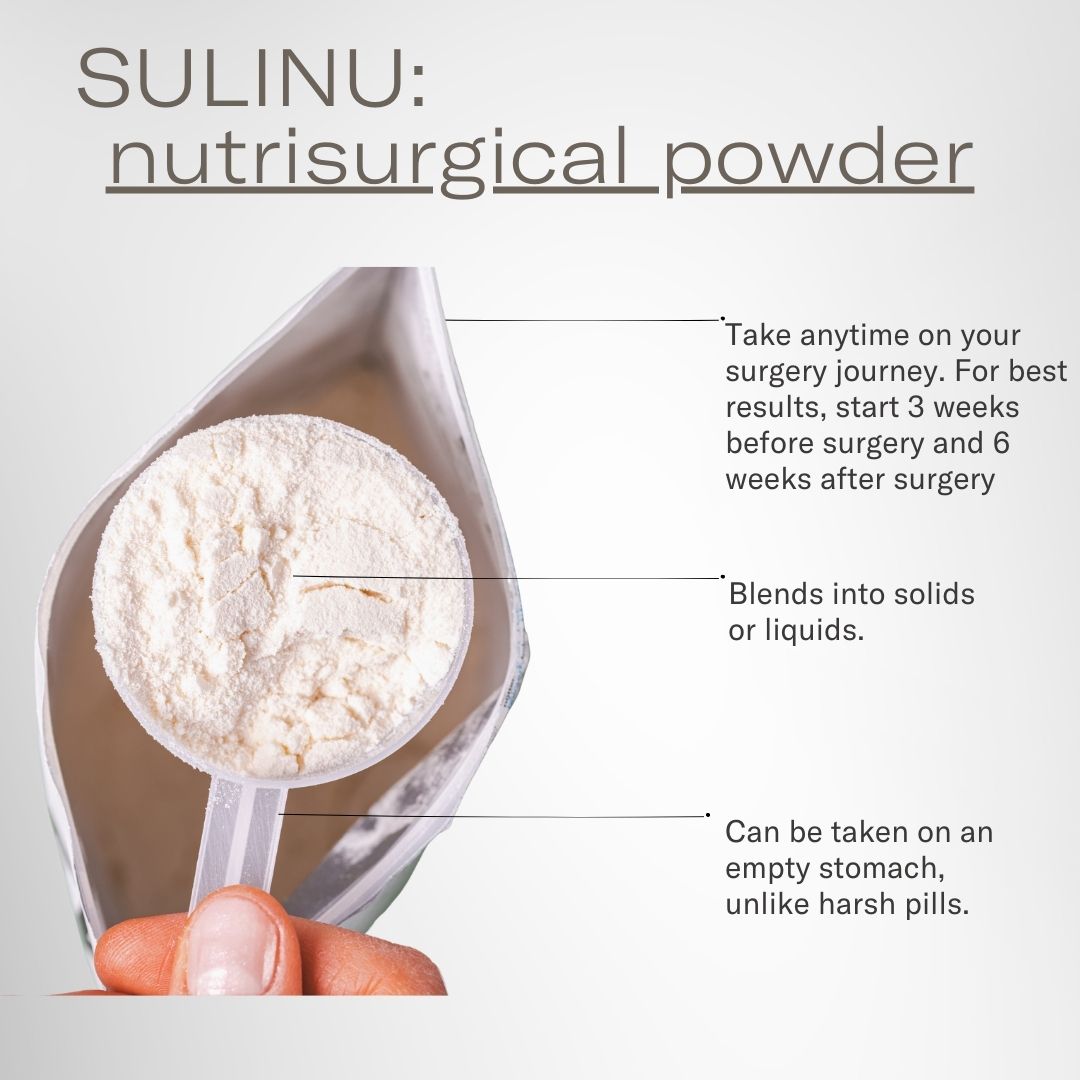
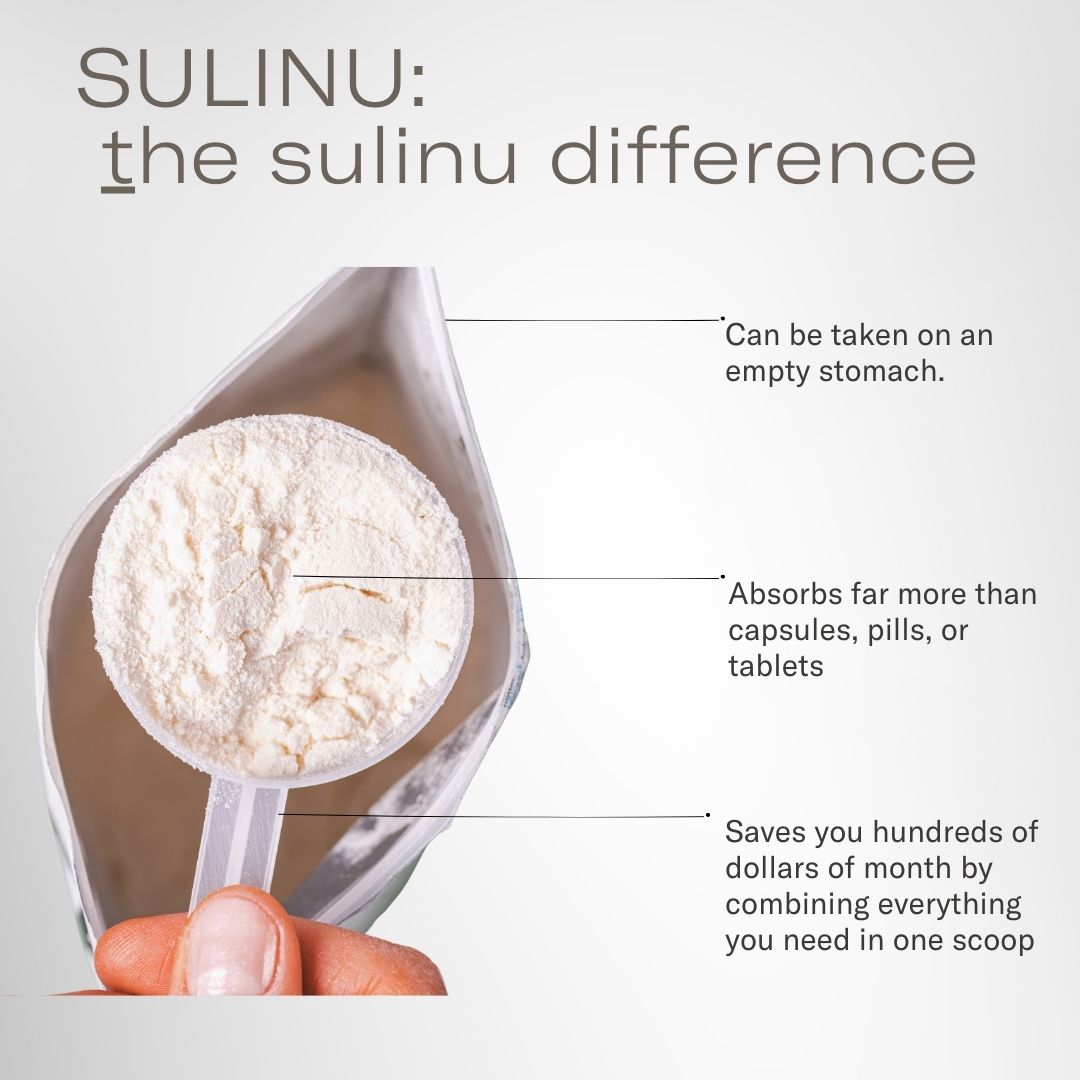
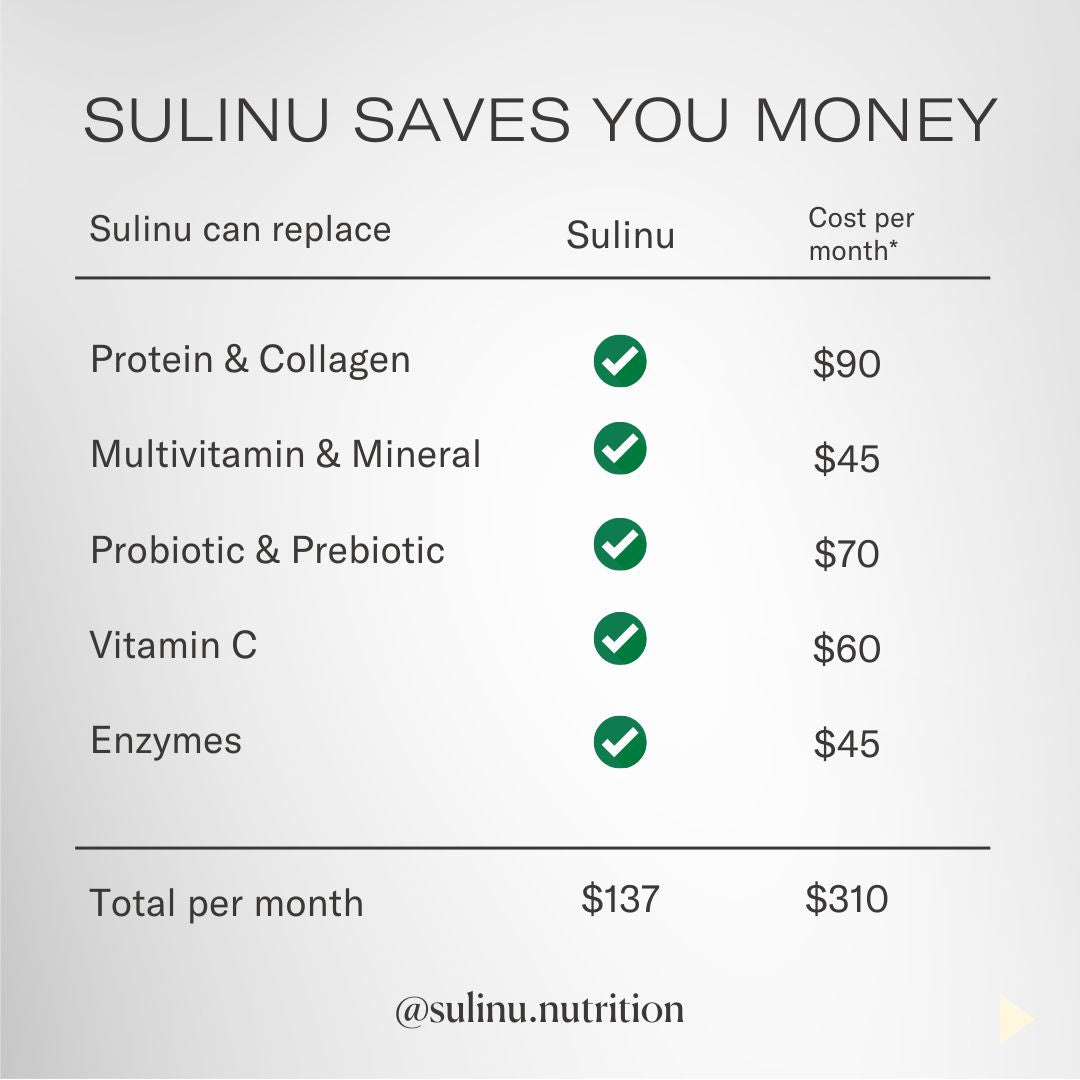
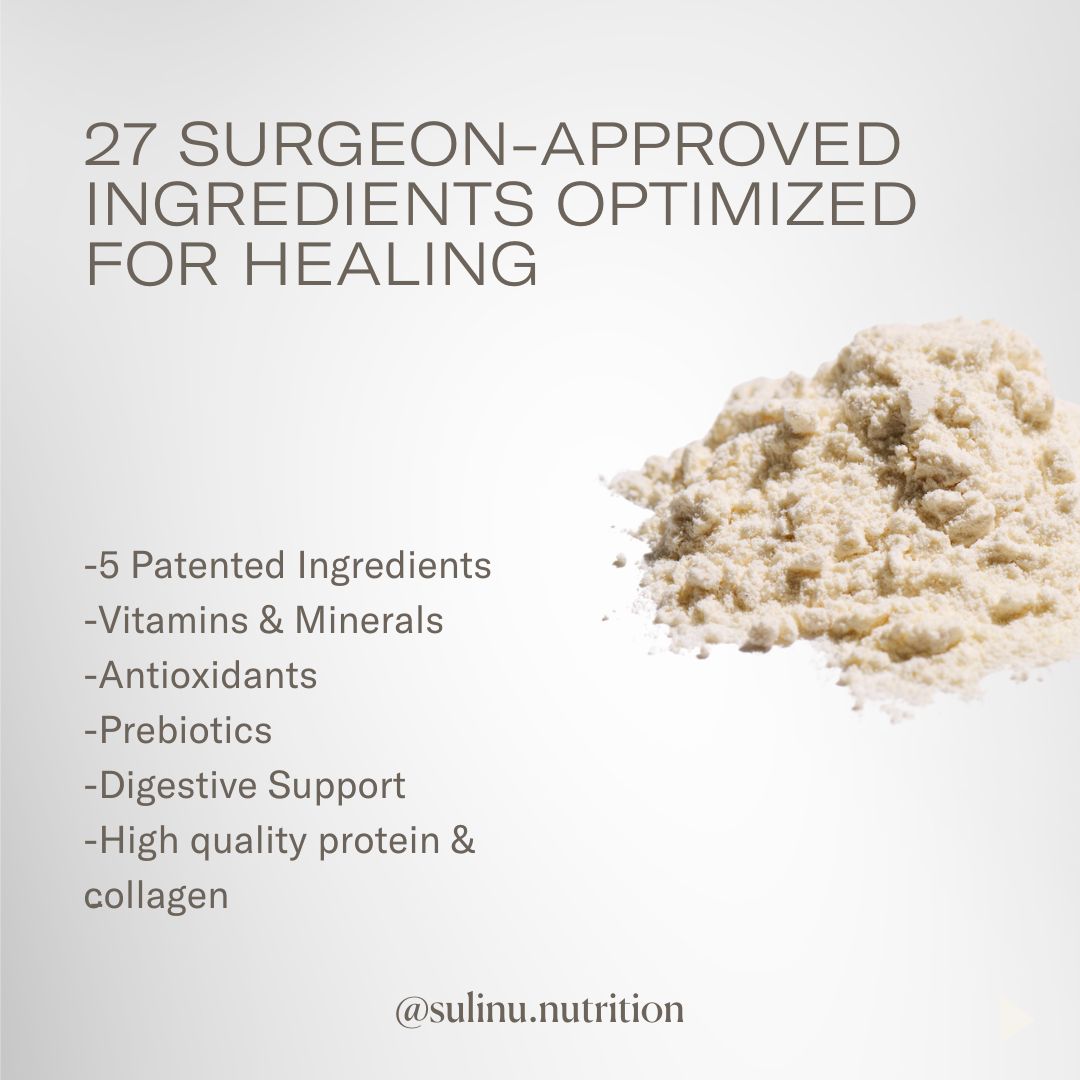
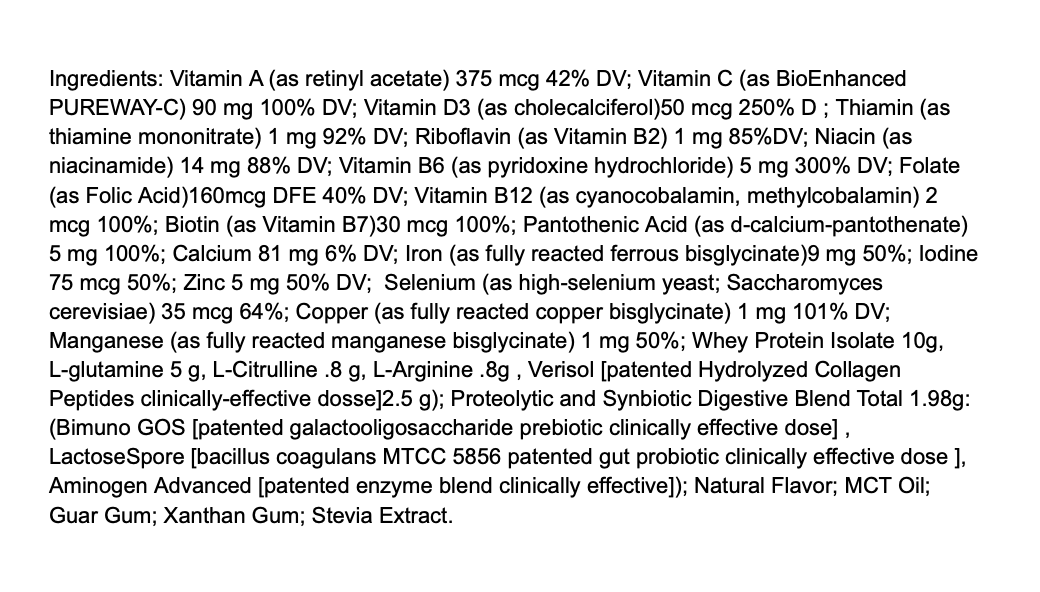
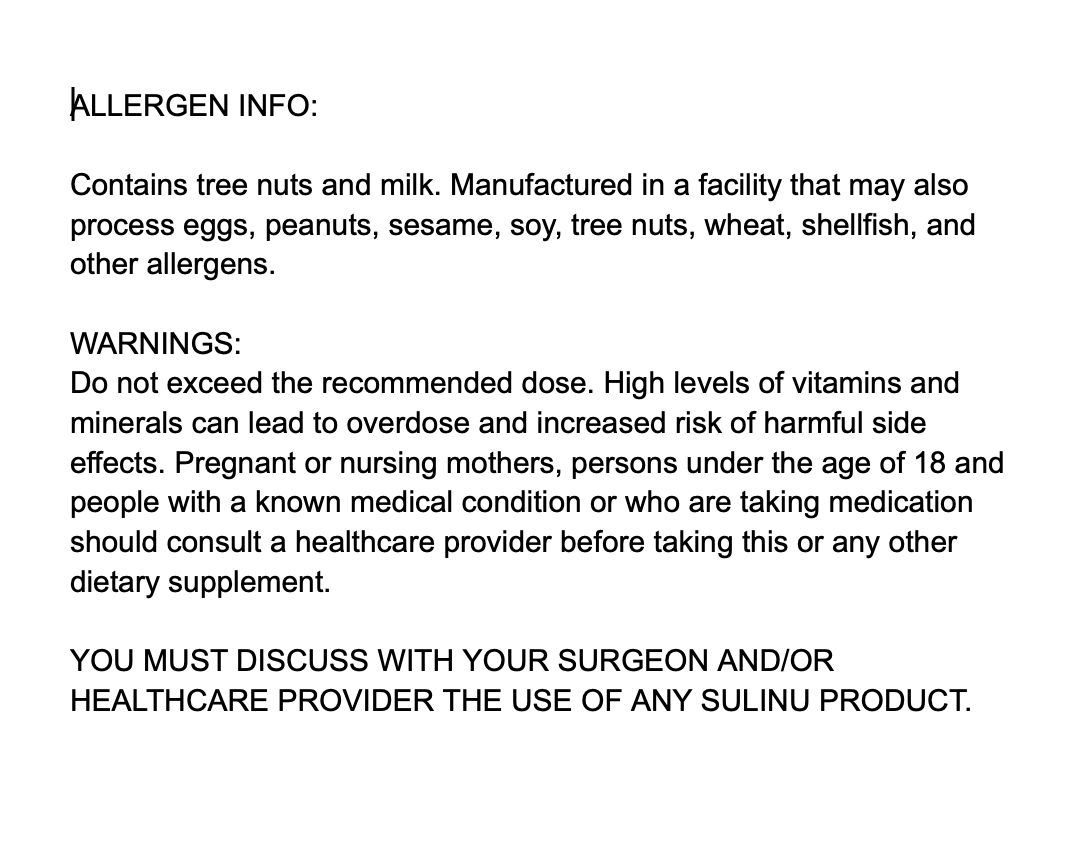
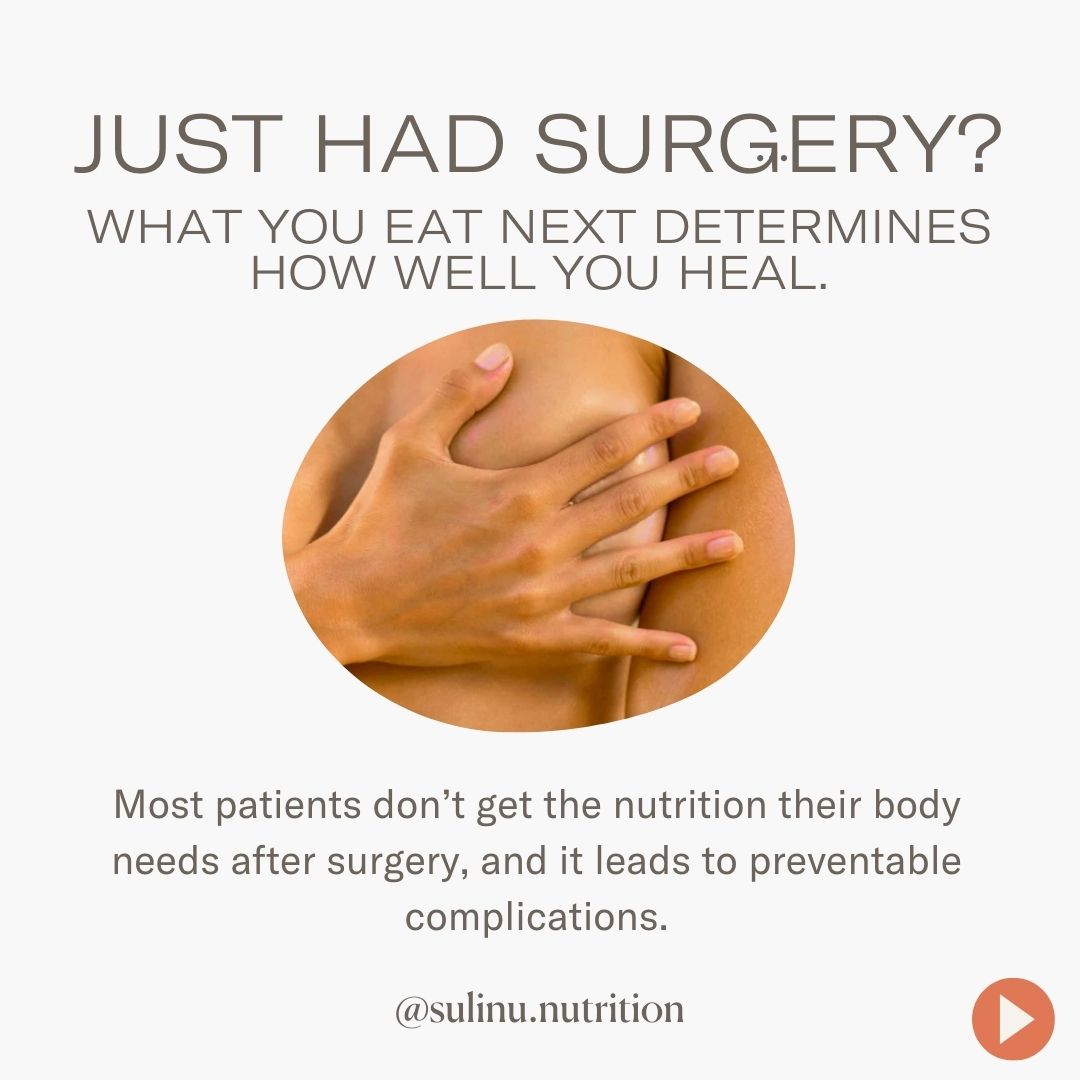
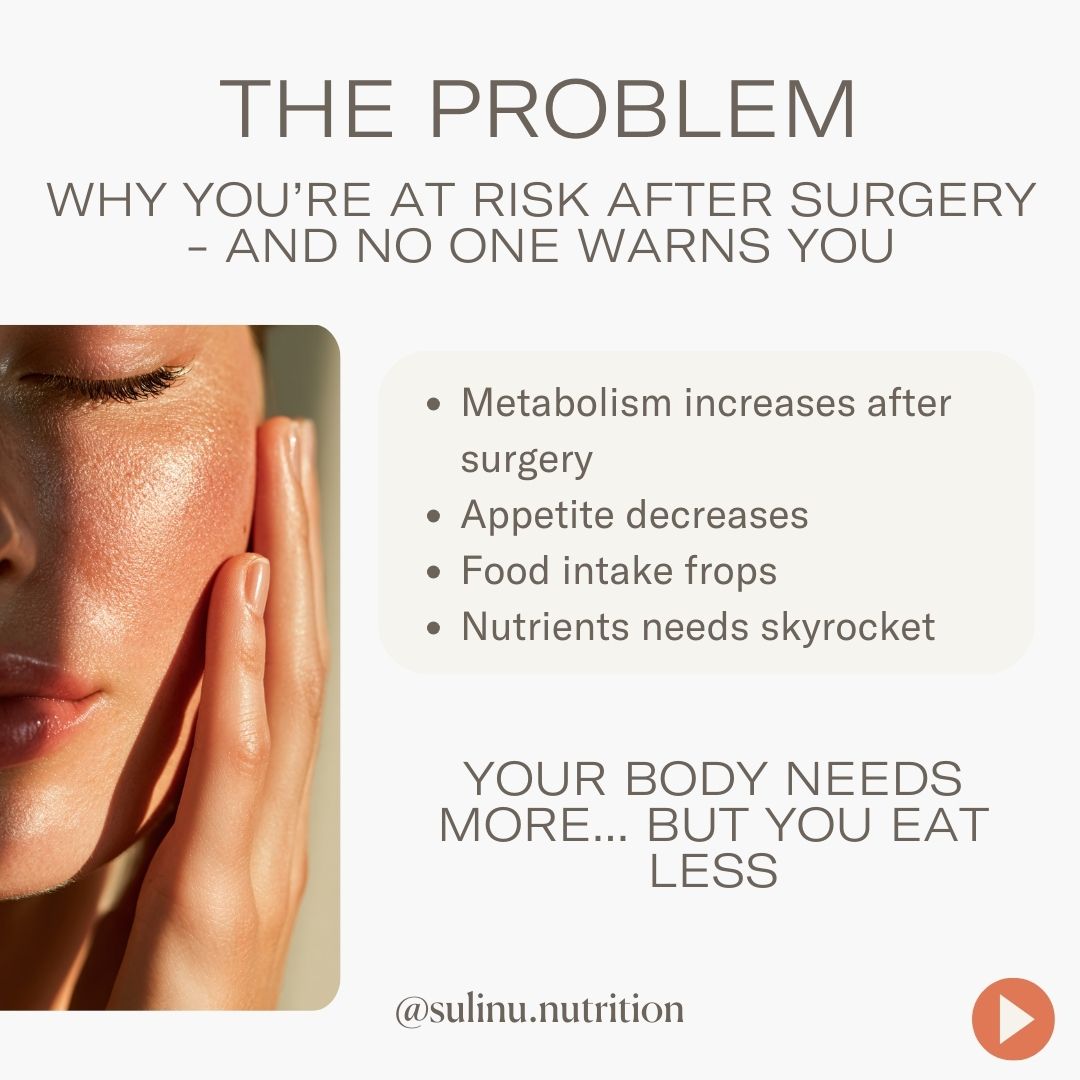
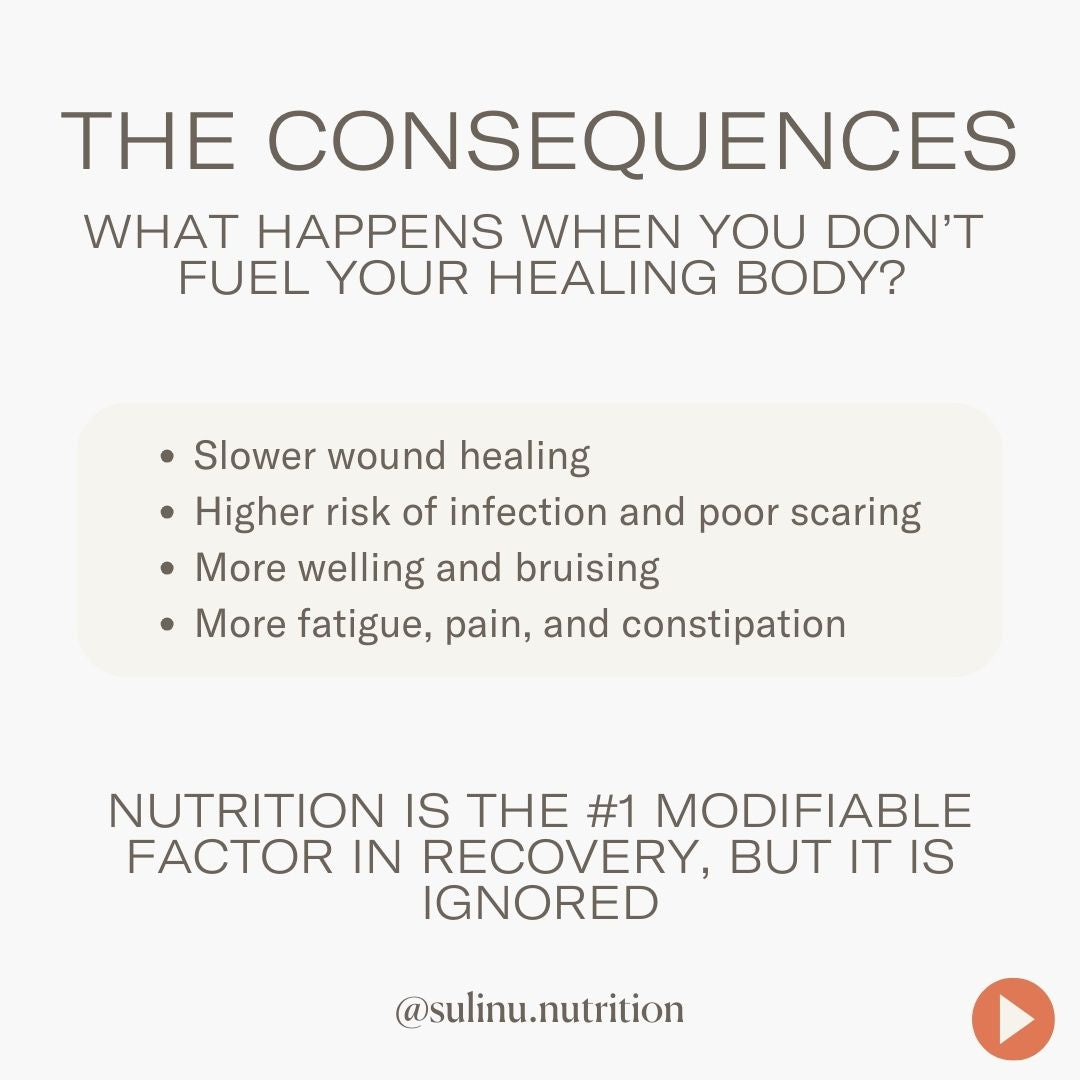
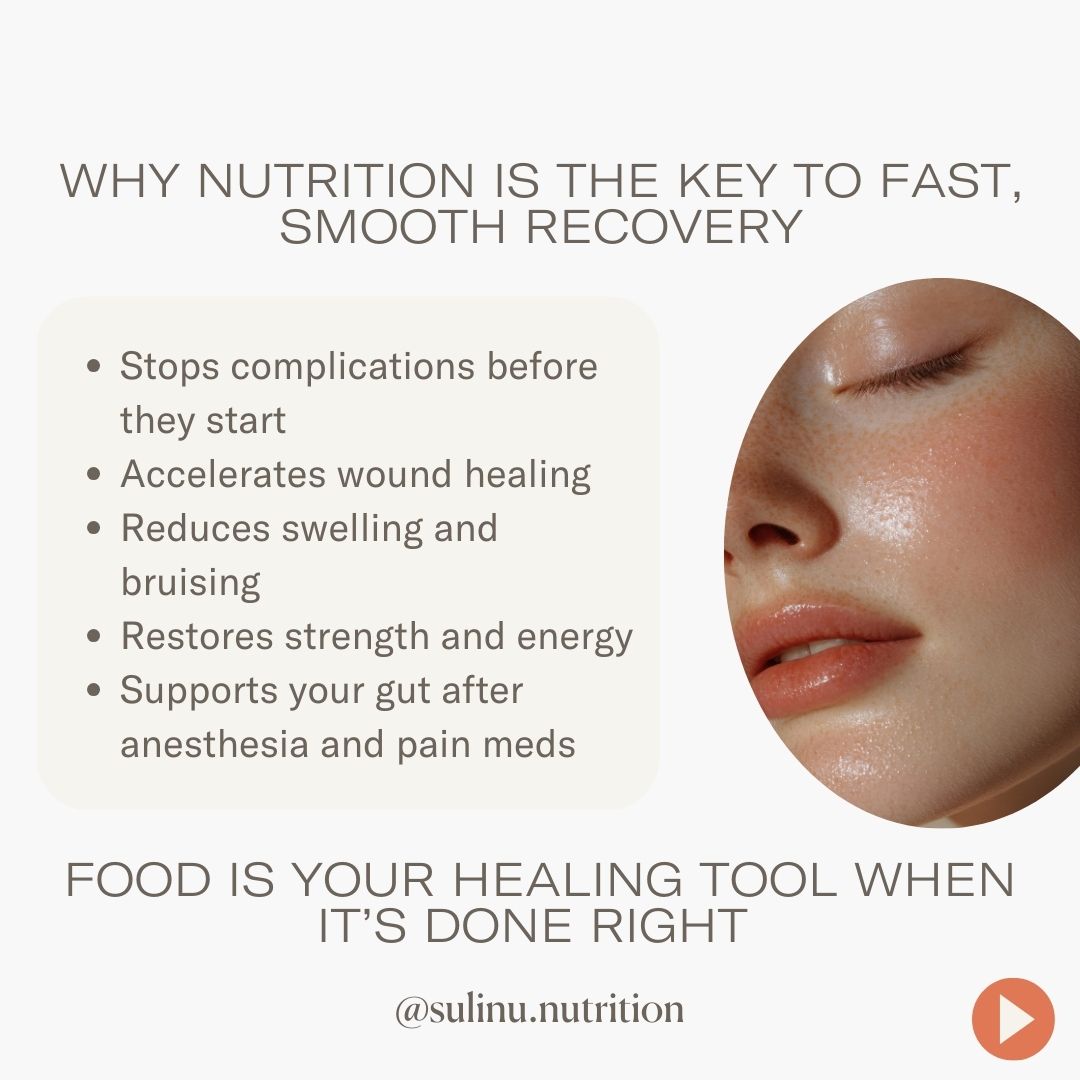
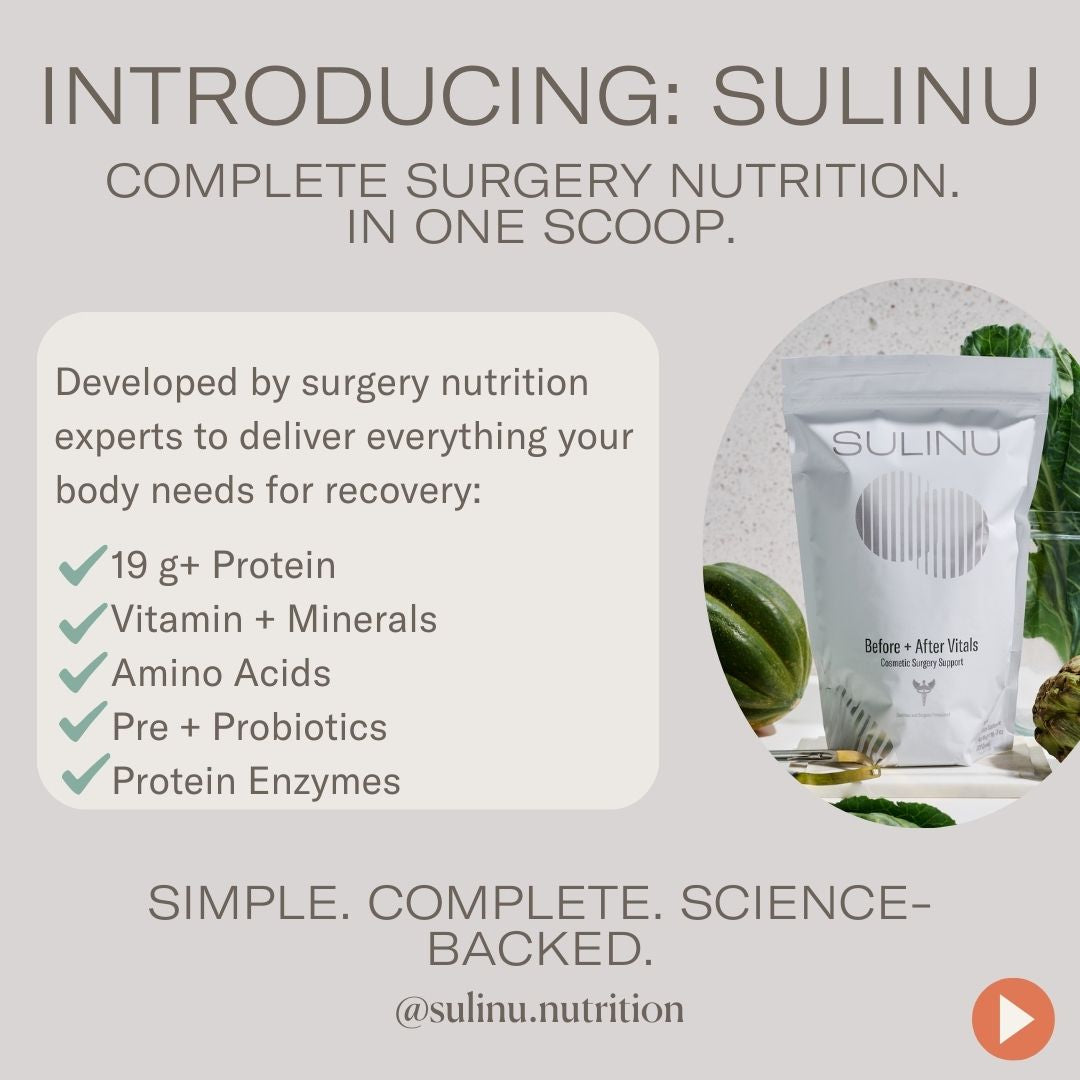
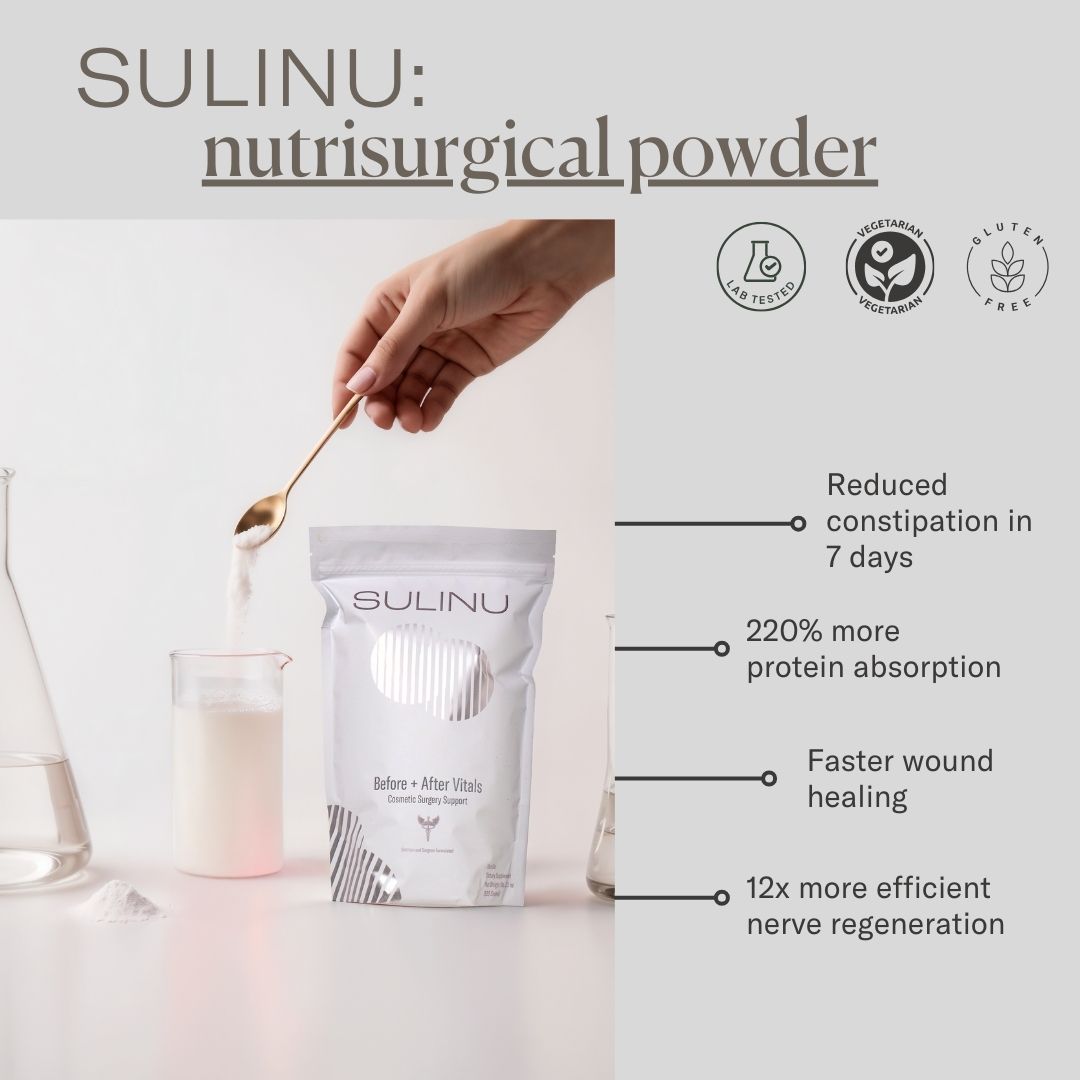
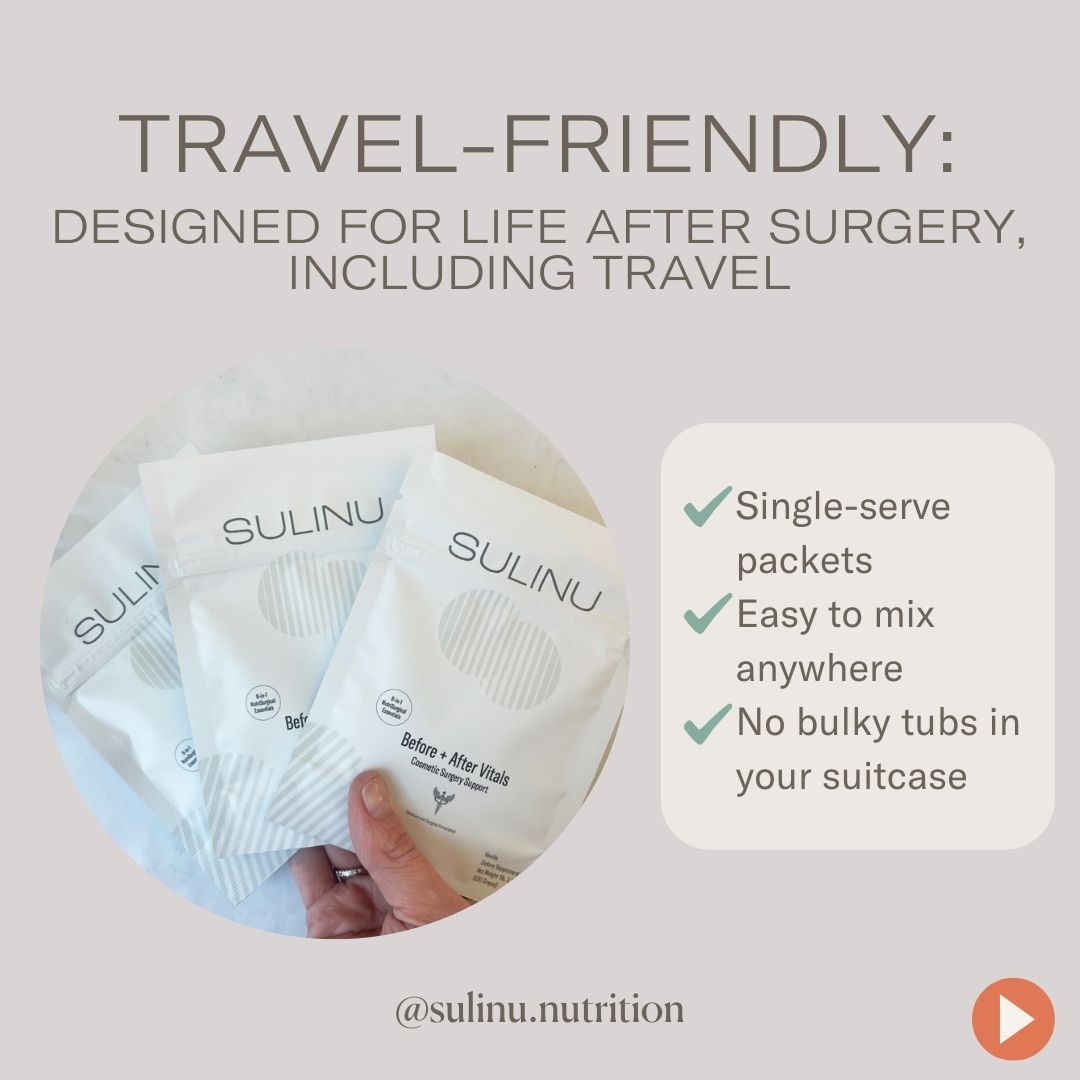
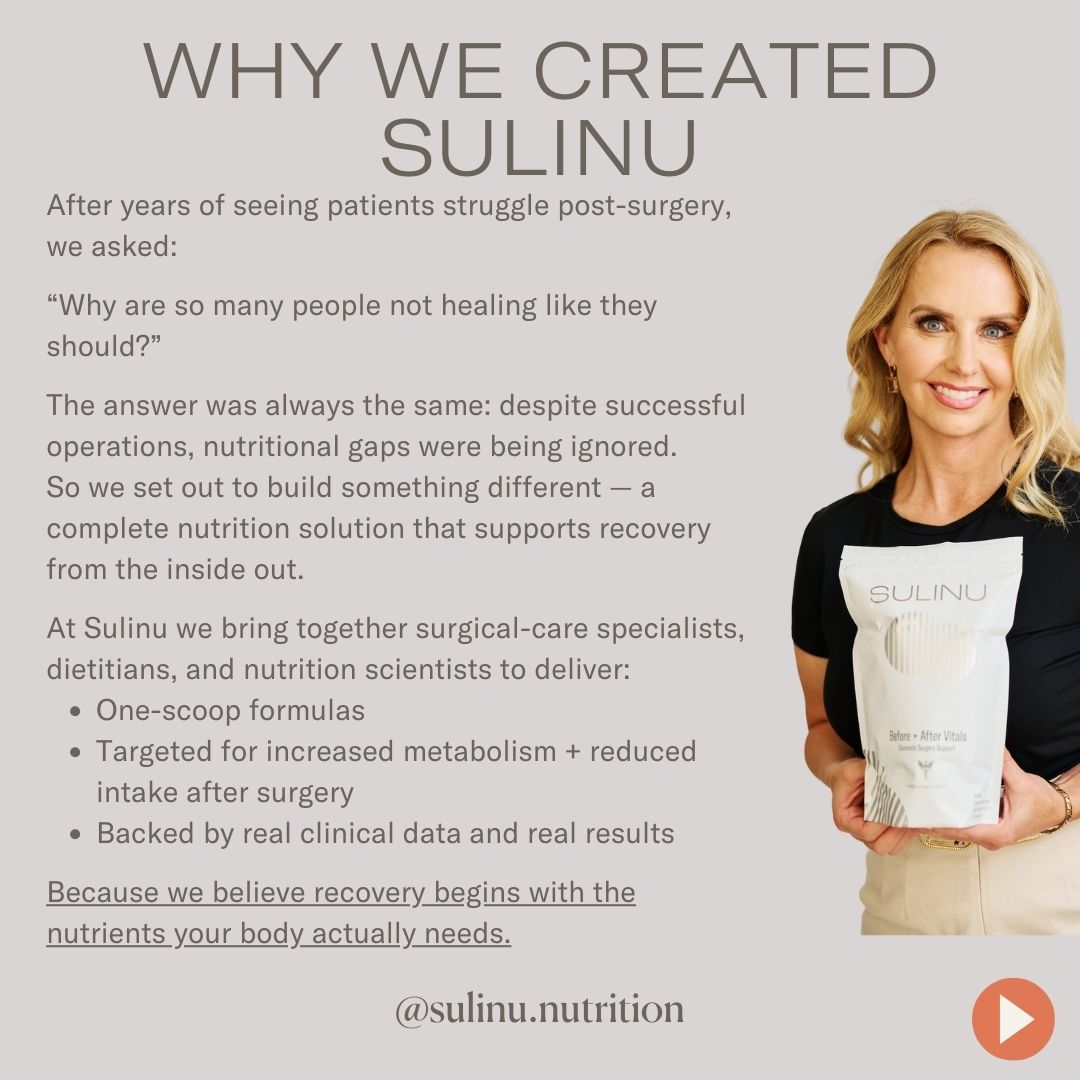
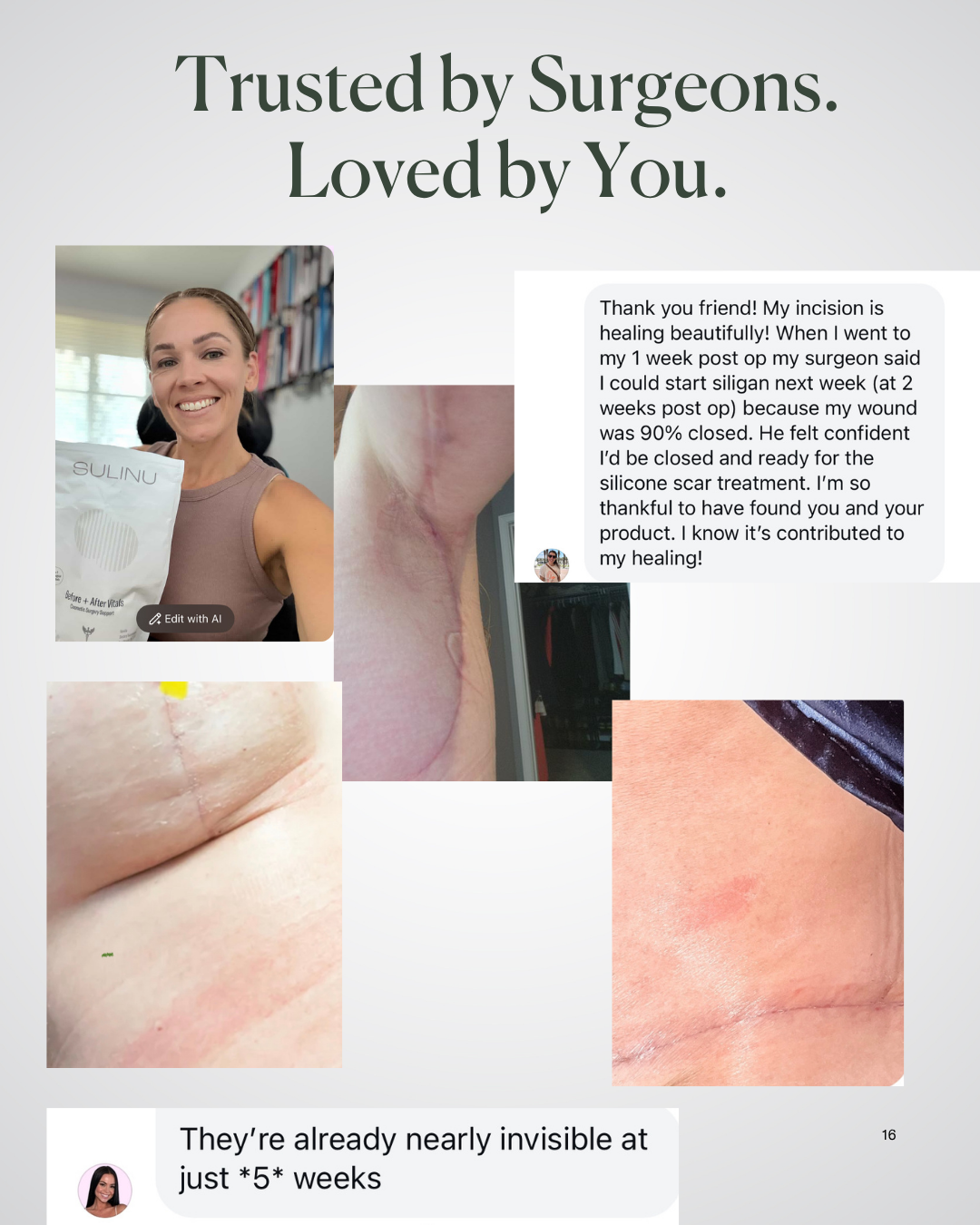
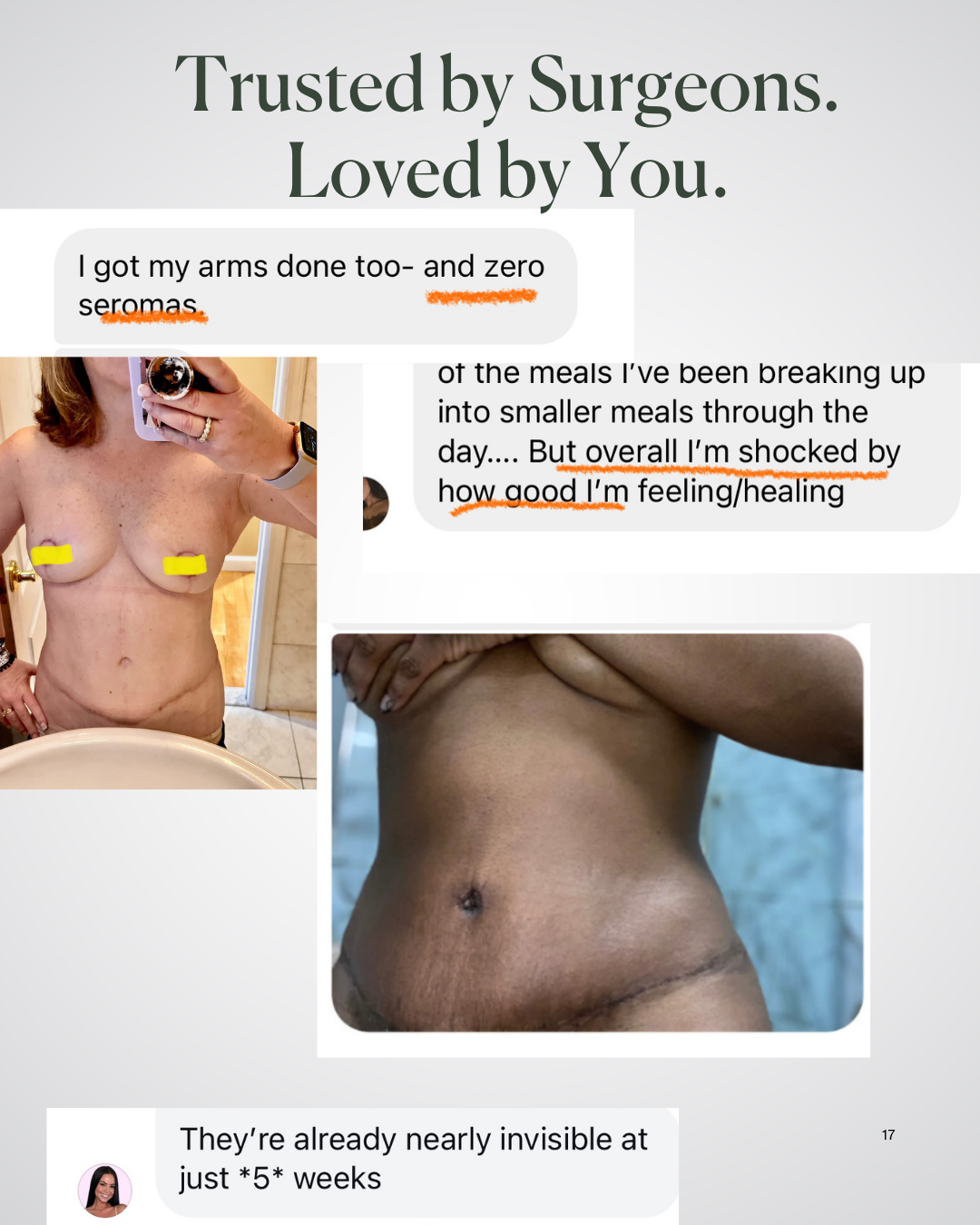
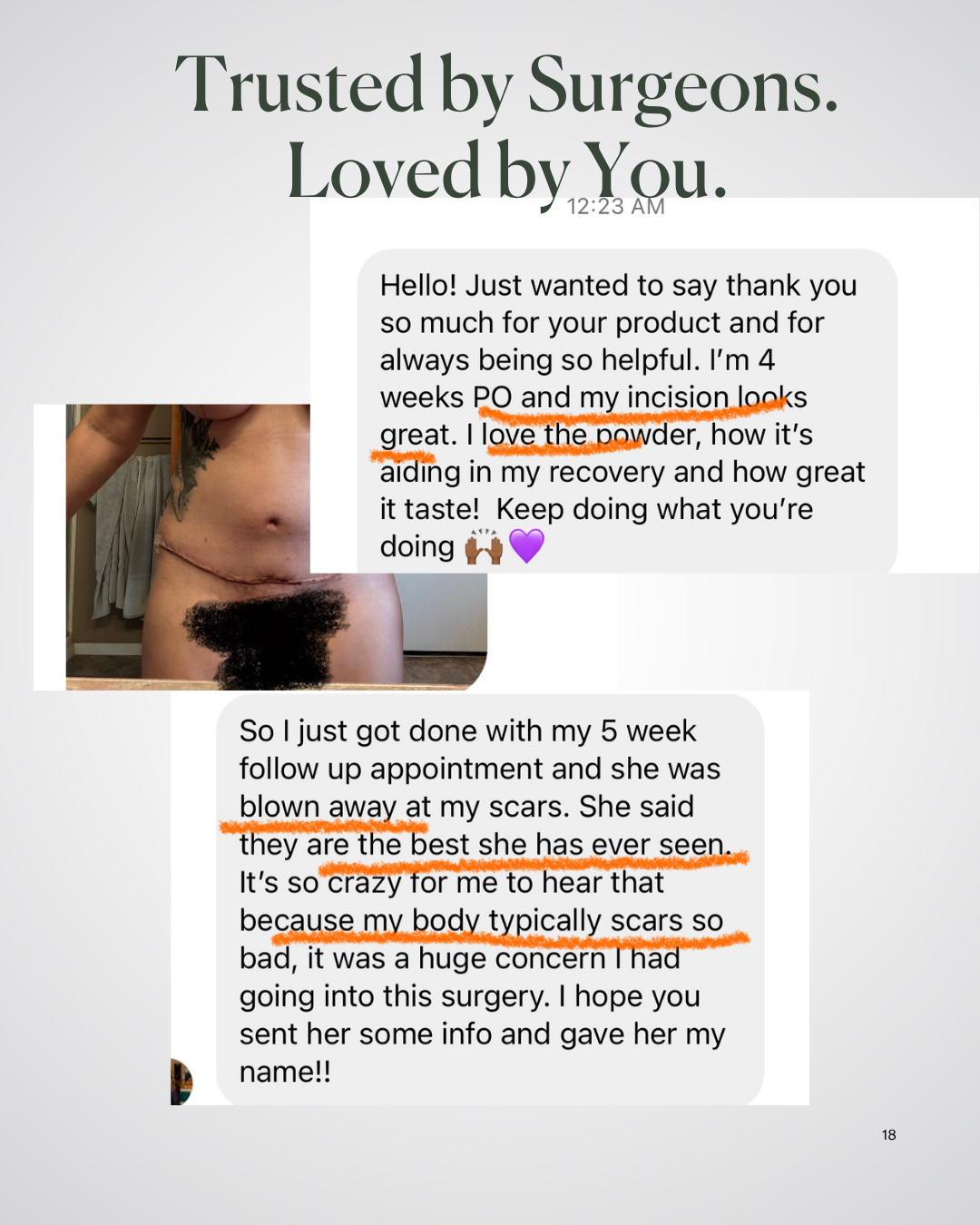
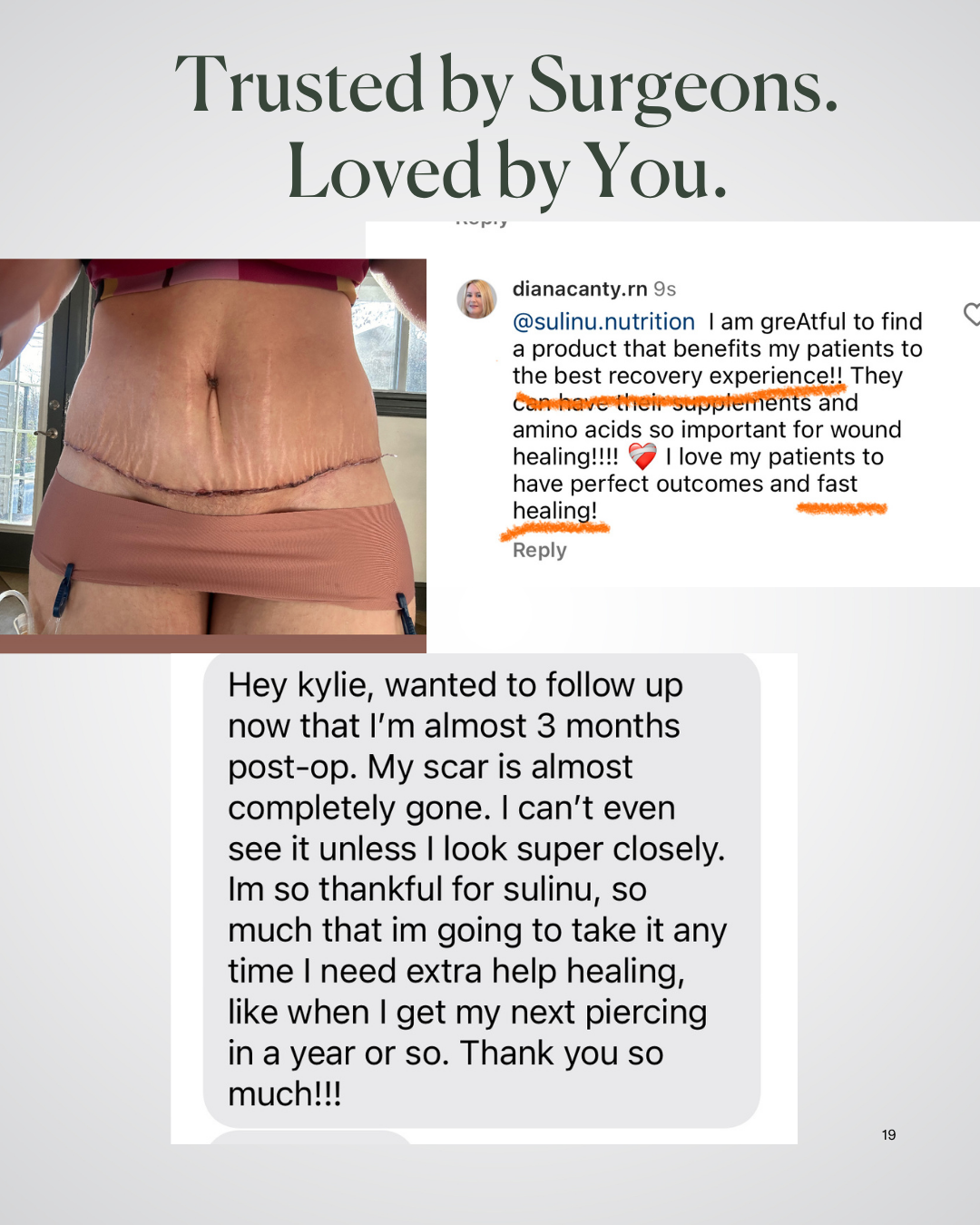
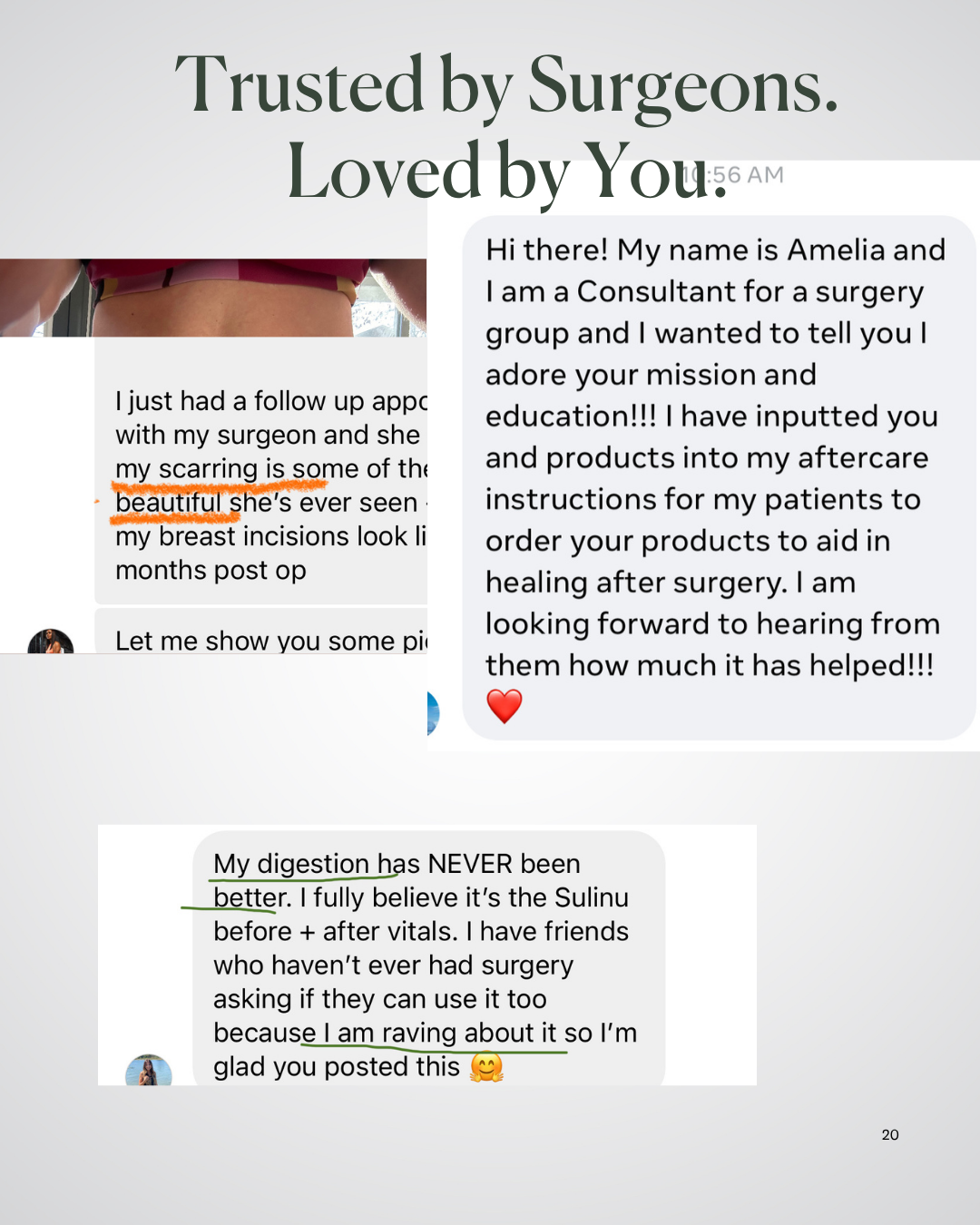
NUTRISURGICAL VITAMIN POWDER -(bag: Vanilla)
**FREE SHIPPING for orders over $150!!**
- 100% Money Back Guarantee
- Discreet Shipping-Your privacy is important
- We recommend 3 bags for any surgery for the best results
This Complete Surgery Powder gives you EVERYTHING you need IN ONE SCOOP.
Pre and Post Surgery Supplements for that near-invisible scar look.
"Can you believe it? [My incision scars] are nearly invisible at just 5 weeks!" -Jessie
Our pre and post surgery supplements are packed with vitamins for wound healing after surgery
- 3rd party tested
- Gluten-Free
- Vegetarian Whey
-
27 Surgeon-Approved Ingredients
- In bioavailable forms
-
5 Patented Ingredients
- Patented is the HIGHEST standard of ingredients
- Faster Incision healing
- Gut microbiome studied
- Clinically tested
- Sourced from Europe and Internationally
- Therapeutic Dosages
Perfect for:
- Before Cosmetic Surgery
- After Cosmetic Surgery
- Slow-to-heal incisions or wounds
- Using a GLP and needing extra nutrition
- Can begin taking at anytime on your surgery journey, EVEN if you are weeks after your surgery! Your scar is healing for a least a year after your surgery date.
How to use:
- Use 1/2 to 1 scoop a day. Max 1 scoop a day for at least 6 weeks postop.
- We recommend 3 bags: Use 1 bag before surgery and 2 bags after surgery
Nutrisurgical Vitamin Powder with Patented, Clinically-tested Ingredients.
All your Protein, Collagen, Amino Acids, MicroNutrients, Synbiotics and Enzymes in ONE SCOOP to give you a seamless recovery after cosmetic surgery.
Note: This product is also commonly used by GLP (Ozempic, Semiglutide, etc) patients to prevent nutrient depletion and Ozempic face
Our Survey Results*:
79% reported a beautiful incision
85% reported a faster recovery
90% liked the taste
X Gluten X Soy X Artificial Colors or Flavors X GMOs
*based upon our postop survey 2024
Introducing BEFORE + AFTER VITALS, the ultimate surgeon-endorsed nutritional supplement tailored exclusively for plastic surgery recovery.
Fears of infection, inflammation, slow-to-heal incisions, and bruising are taken head-on by this super fine, quick-to-dissolve powdered supplement. Add a delicious hit of vanilla flavor to your cold or warm drinks, smoothies, or culinary creations.
1 pouch is 20 servings.
ALLERGY info: Contains lactose. Product was processed in a facility that may also process eggs, peanuts, sesame, soy, tree nuts, shellfish, and other allergens.
